Zen 5 is out, and AMD Ryzen 7000 Zen 4 processors are distinctly last-generation now. Solely various reviewers produced benchmark information that
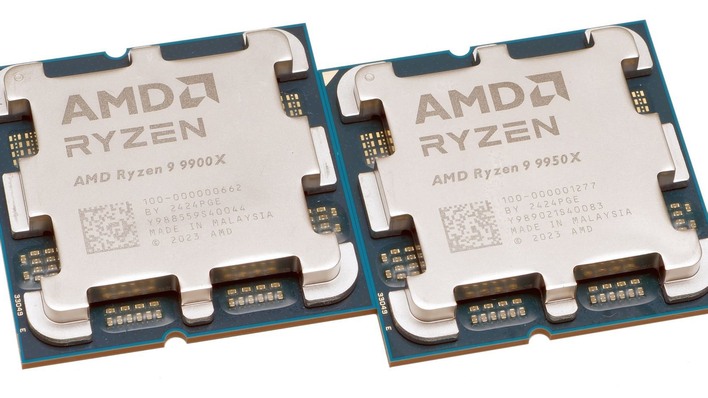
In To the psyches of sore group members, AMD has launched a weblog titled “Ryzen 9000 Sequence Group Replace: Gaming Efficiency.” Within the put-up, AMD acknowledges that the numbers out of some impartial overview websites (like us right here at HotHardware!) did not reasonably match as much as the numbers it offered in pre-release supplies. AMD did not simply pull these numbers out of skinny air, although.
Indeed, whereas fanboys prefer to bash company advertising and marketing groups and declare their numbers are all lies, that is probably not how any of this works. AMD has a substantial inside testing staff, and the method by which its labs generated that information is well-documented. The corporation explains that it has found at least a few causes for the discrepancies, together with the well-known circumstance that AMD checks with a neighborhood Admin account, which is curiously rising efficiency.
Among the explanations AMD provides are wise: its gaming suite contains “a broad set of esports, AAA, and standard older video games.” Indeed, the video games AMD offered figures for when evaluating the Core i9-14900K towards the Ryzen 9 9950X embody slightly older titles like Borderlands 3 and Horizon: Zero Daybreak in addition to e-sports video games like Dota 2. The corporation notes that many reviewers look at “predominantly AAA titles,” which is truthful and sufficient; sports choice has every little thing to do with the ultimate outcomes.
Nevertheless, AMD additionally notes that it examined its merchandise “utilizing comparable DDR5-6000 reminiscence in addition to Intel default settings-baseline energy profile.” If you happen to recall, Intel recently revealed that steering assists customers in keeping the well-being of their Raptor Lake CPUs. That steering contains three energy profiles: baseline, efficiency, and excessive. AMD remarks that “some critiques used DDR5-7200 reminiscence and Intel default settings-extreme energy profile,” and that will surely make a distinction—although now we have to notice that Intel indeed recommends the “Excessive” energy profile for Core i9 “Ok” and “KS” processors.
Moreover, AMD feedback that it checks with Virtualization-based Safety “on.” This one is just a little odd to us, as that is the default Home Windows 11 configuration, and we reasonably doubt that many reviewers are disabling VBS earlier than testing new {hardware}; however, A, MD claims that its competitor good points extra efficiency with VBS disabled and that some reviewers have been testing this fashion. As soon as once more, truthful play, we suppose.
Might Home Windows Updates Make Up The Distinction?
The most fascinating comment AMD makes within the document concerns that “relatesario, although. AMD says that looking at the methodology, it was run in ‘Admin’ mode, which produced outcomes that replicated department prediction code optimizations that were not current within the model of Home Windows reviewers used to check the Ryzen 9000 collection.”
We’re undecided about what using a standard or administrator account has to do with the model of Home Windows you are utilizing; however, we determined to check for ourselves utilizing a recent Home Windows set utilizing a neighborhood Admin account on the most recent Insider Preview construct. We did not run our full benchmark suite as we did not have time; however, listed below are the outcomes now we have to this point:
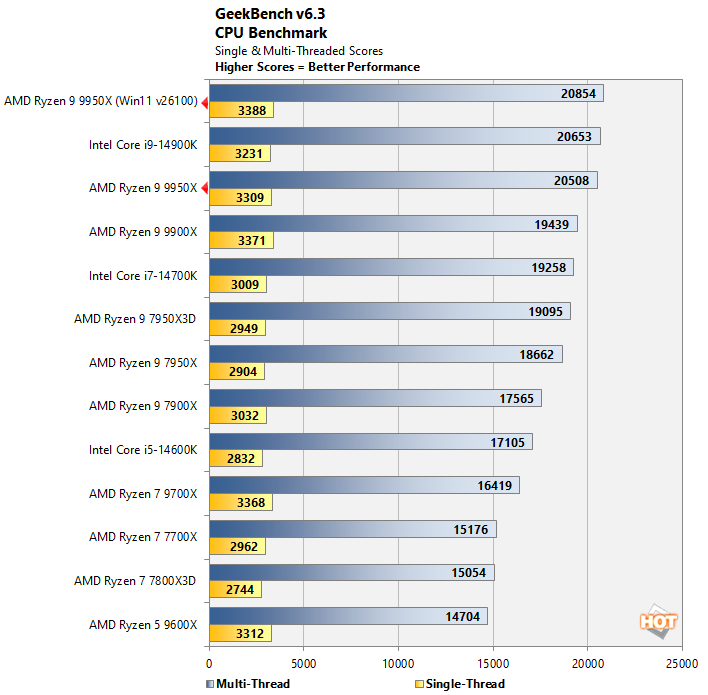
In Geekbench v6.3, we saw slight enhancements in both single- and multi-core efficiency. These bumps truly put our Ryzen 9 9950X simply barely ahead of the Core i9-14900K, which AMD is completely happy to see. We feel we must always stress that the good points are minimal, but they’re undoubtedly actual.
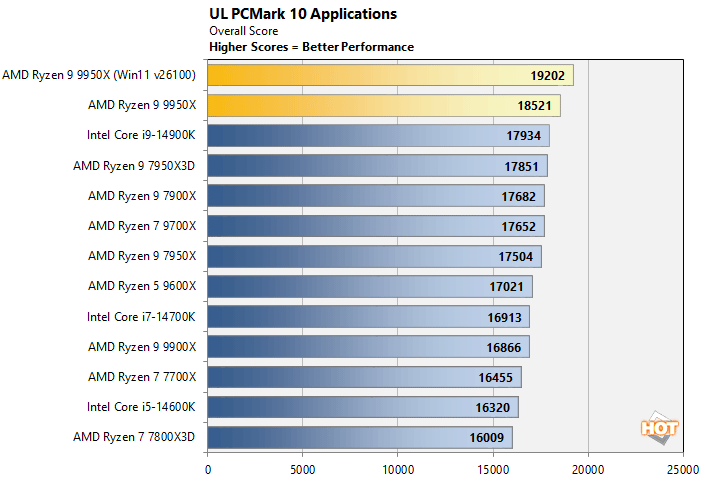
The PCMark Purposes test, which uses Microsoft Office functions, also reveals a pleasant uptick in efficiency. The Ryzen 9 9950X was already the chief here, but utilizing the most recent Home Windows build with the particular Zen 5 updates helps the 9950X prolong its lead.
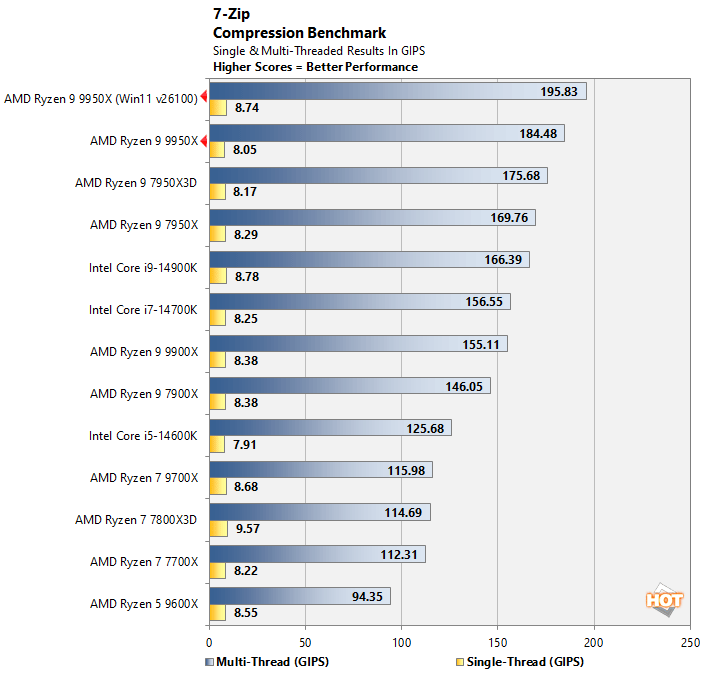
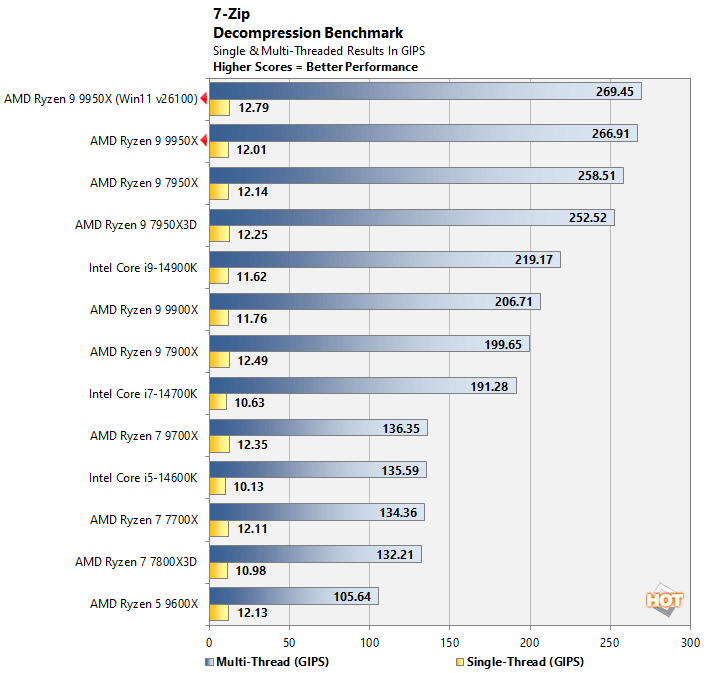
Each of the compression and decompression checks utilizing 7-Zip presents a marginal enhancement. Each single- and multi-threaded consequence is improved right here.
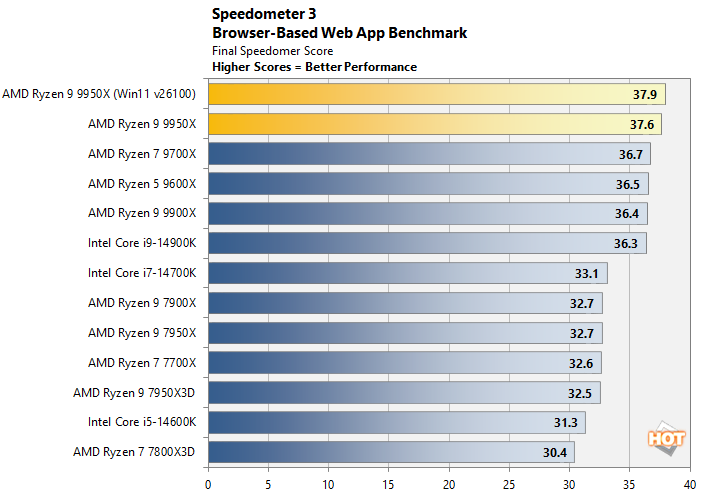
We are utilizing the most recent Home Windows 11 construct as soon as it once more gave us a tiny nudge upward within the Speedometer 3 net utility benchmark. The Ryzen 9 9950X was already our quickest CPU on this. Please look at it; however, no matter what optimizations are current within the newest construct of Home Windows, it carries it forward with everything else.
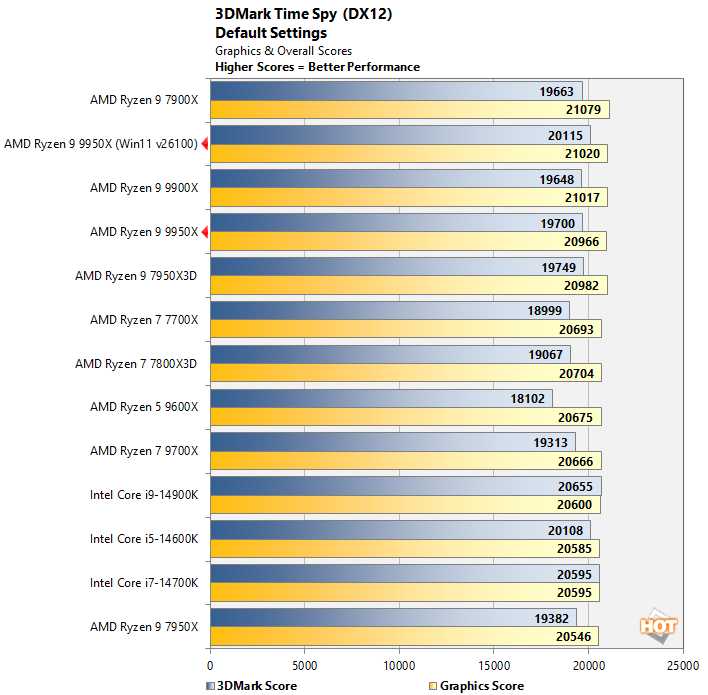
In 3DMark Time Spy, the image is rosier than you suppose. Whereas the graphics rating principally did not change—comprehensibly contemplating we’re utilizing the identical GPU—the general 3DMark rating significantly improved because of a significant uplift within the Physics portion of the benchmark.
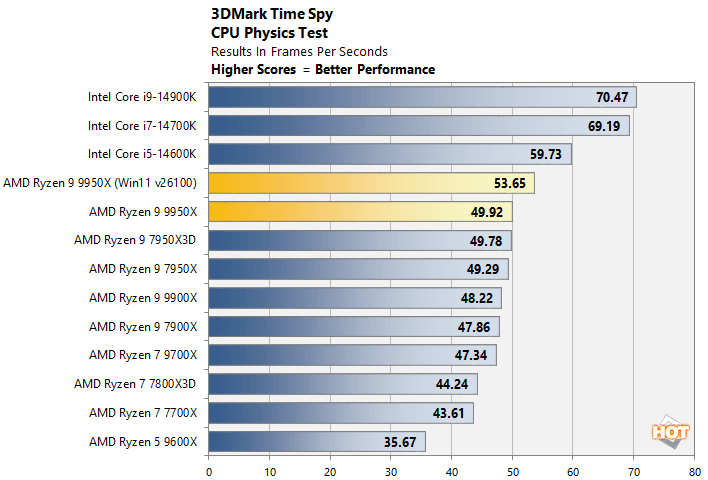
If we look particularly at the physics rating, this Home Windows Insider construct significantly improves it. This might translate to efficiency enhancements in CPU-limited video games that use all these CPU cores.
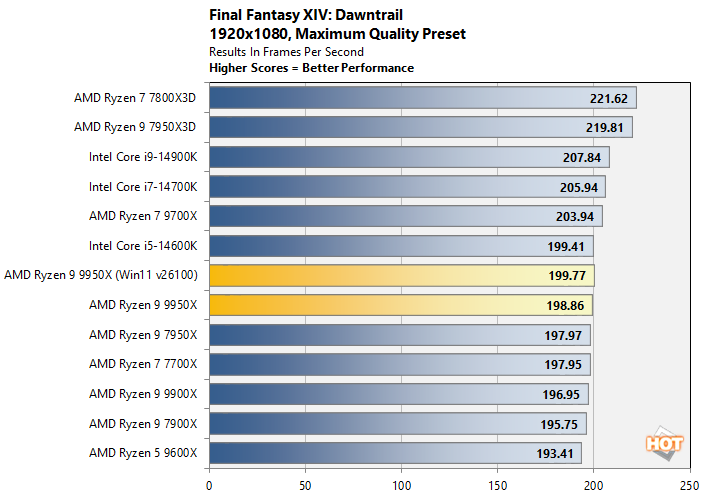
Lastly, in the Last Fantasy XIV: Dawntrail benchmark, we noticed no change in efficiency. Last Fantasy XIV is notoriously single-threaded, and the Dawntrail graphical replacement did little to change that, so it is no shock that one of these optimizations did not do much for this sport. Outcomes with F1 2024 and the Talos Precept II (the opposite video games we utilized in our overview) have been flat.
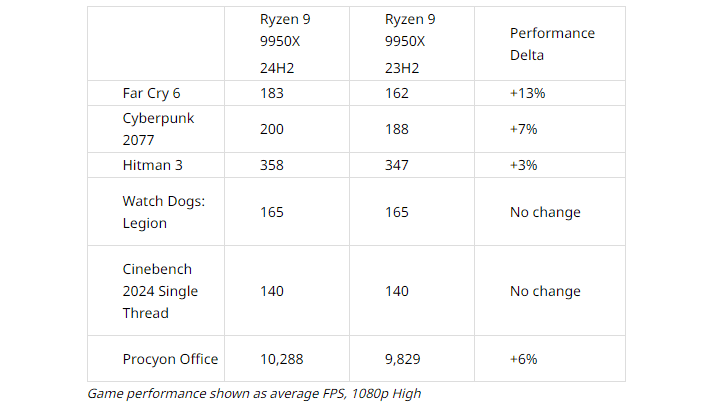
For its part, AMD produced a chart of benchmark outcomes evaluating Home Windows 11 23H2 to the most recent model 26100 that we examined. The corporation says it discovered efficiency uplifts as large as 13% in Far Cry 6, which is feasible. The 7% acquired in Cyberpunk 2077 and the 3% acquired in Hitman 3 are more according to what we simply noticed in our testing, however.
AMD says that the brand new version of Home Windows 11 may also convey comparable (if smaller) efficiency benefits for its Zen 3 and Zen 4 processors, which is good news for those of us rocking Ryzen 5000 and Ryzen 7000 CPUs. Finally, the corporation most likely ought to have been more forthcoming about the fact that its benchmark information was produced utilizing a version of Home Windows that most individuals do not even have.
Share this content:

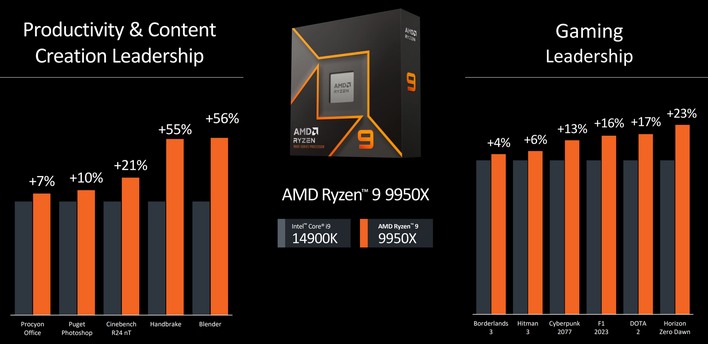
COMMENTS